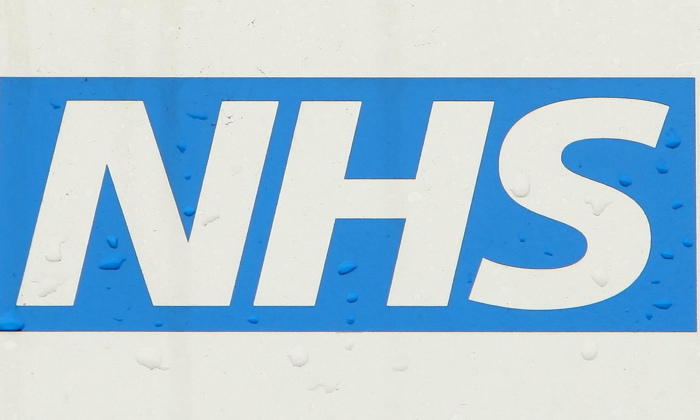How do Health Policies in the Parties’ Manifestos Compare?
All parties are committing to increasing staffing levels, but they have different approaches to achieve this goal. Meanwhile, Reform is making bold promises regarding taxes for NHS workers and the World Health Organization.
Opinion polls indicate that the NHS is a major concern for voters in the upcoming general election. Health and social care are among the most talked-about topics on the campaign trail leading up to the July 4 election.
The NHS is a contentious issue, revered as a state religion by some and criticized as an inefficient system by others.
While all parties are promising more frontline staff and better patient access to state healthcare, their strategies differ.
Reform Pledges 3 Years of Zero Income Tax
Reform UK, under Nigel Farage’s leadership, presents its healthcare policies as a “contract” that sets them apart from other parties.
Reform is the only party addressing the concerns raised by opponents of lockdowns. They vow to withdraw the UK from the World Health Organization and the pandemic treaty, unless significant changes are made within the organization.
A surprising pledge from Reform is the proposal to exempt all frontline NHS and care workers from paying basic rate income tax for three years to encourage recruitment.
However, experts like the Institute for Fiscal Studies question the feasibility of such significant tax cuts without affecting public services.
Reform’s plan to increase staff without relying on immigration involves expanding places for UK medical and nursing students and forgiving student debt based on years of service in the NHS.
Farage also intends to utilize the private sector further by offering a 20% tax relief on private health care insurance and introducing a voucher scheme for patients to access private treatment if NHS appointments are delayed.
Reform is the only party committing to conducting an inquiry into the adverse effects of COVID-19 vaccines and excess deaths.
While the government acknowledges the negative impact of lockdowns on the nation’s health, other parties like Conservatives, Labour, Liberal Democrats, and Greens do not specifically address lockdowns or the pandemic treaty in their manifestos.
Reform vows to ban the teaching of gender ideology in schools to enhance the mental well-being of young individuals who identify as transgender.
Conservatives Pledge to Keep Spending Above Inflation
Prime Minister Rishi Sunak’s Conservative Party manifesto promises to increase NHS spending beyond the inflation rate and recruit 92,000 more nurses and 28,000 additional doctors within five years.
Sunak assures the completion of the New Hospitals Programme to construct 40 new hospitals by 2030 and invest £3.4 billion in new NHS technology. Similarly to Labour, the Tory manifesto proposes leveraging AI to free up staff time, expand the NHS app, and move some health services from hospitals to the community.
The Conservatives plan to extend the government’s Pharmacy First scheme to grant more prescribing rights to chemists and nurses for specific health conditions, a policy endorsed by other parties.
The Tories aim to increase support teams in schools and colleges for mental health from 50% to cover all institutions.
The Conservatives plan to ban the sale of tobacco and vaping products to individuals born from 2009 onwards. This move is supported by Labour, the Liberal Democrats, and the Greens.
The party proposes capping social care costs by 2025 and providing local authorities with a multi-year funding settlement post the next spending review.
Liberal Democrats Pledge Free Social Care
The Liberal Democrats, led by Sir Ed Davey, propose extending NHS funding to cover social care, making it a focal point of their manifesto.
The party promises £9.4 billion for health and social care, with plans to fund free personal care and improved pay for carers by increasing taxes on banks and closing loopholes benefiting the wealthy.
The Lib Dems aim to boost the number of full-time GPs by 8,000 to ensure timely access to GPs for everyone, with a new booking system to support this goal.
They advocate for a Cancer Survival Research Act to fund research into cancer types with low survival rates.
The party pledges to enhance access to mental health services through walk-in hubs for young people in every community.
Labour Pledges Weekend Appointments
As the creators of the NHS, Labour promises to mend relations with staff and boost funding by closing an inheritance tax loophole for non-doms.
Labour leader Keir Starmer commits to creating 40,000 additional appointments each week by incentivizing staff to work evenings and weekends. The party also plans to increase NHS mental health staff by 8,500 and expand mental health hubs for young people.
Labour seeks to implement the Cass Review’s recommendations for young people dealing with gender identity issues and pass laws to ban conversion therapy.
Through a life sciences plan, Labour aims to accelerate the approval and market introduction of medical equipment and drugs, leveraging the NHS app to recruit volunteers for clinical trials.
Labour’s agenda focuses on improving children’s health records, addressing obesity by banning junk food advertisements to children, and restricting the sale of high-caffeine energy drinks to under-16s.
Lastly, the Green Party promises to raise junior doctors’ salaries, enhance social care worker career structures and pay through a £10 billion investment, and introduce new laws to support individuals with mental health conditions.



